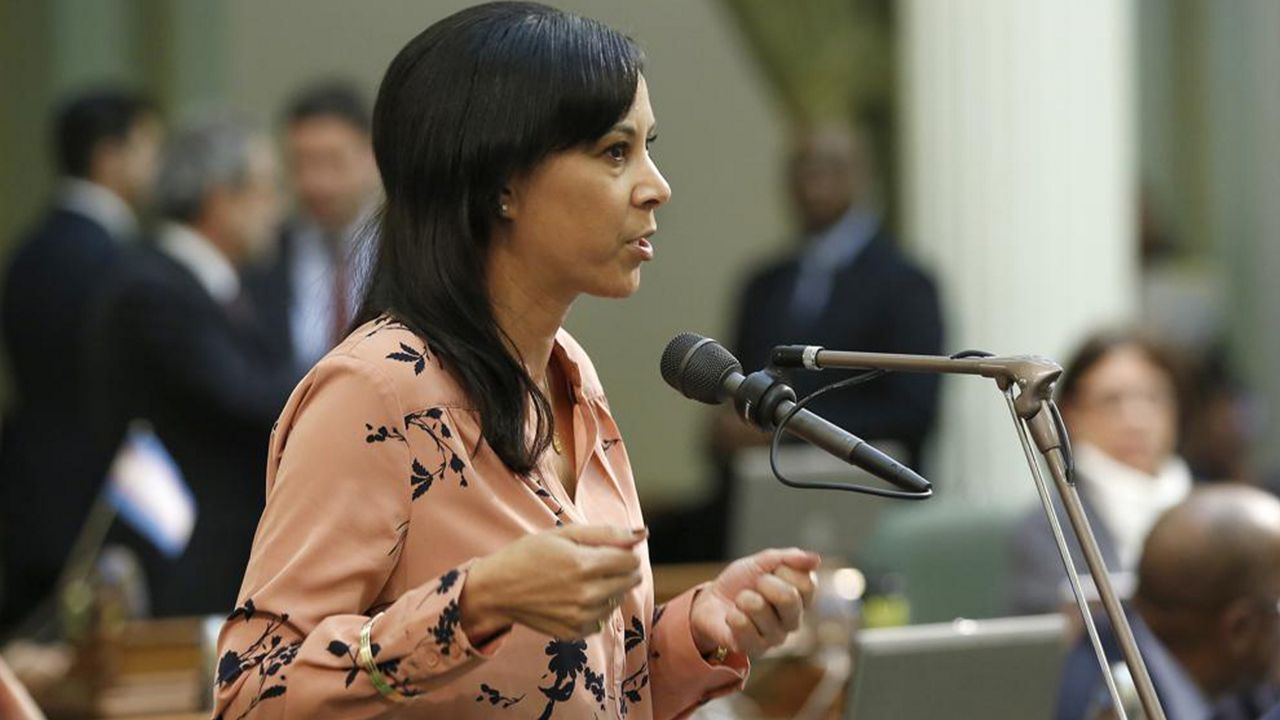SACRAMENTO, Calif. (AP) — Term limits, the pandemic and a once-a-decade redistricting process have combined to prompt a flurry of early exits from the California Assembly, leaving the chamber with an usually high number of vacancies.
The latest resignation came Monday night when Assemblymember Autumn Burke, a Democrat from Inglewood and chair of the influential Revenue and Taxation Committee, said she would resign effective Tuesday to spend more time with her family — including her young daughter Isabella, who co-signed her mother's resignation letter in bright, multicolored letters.
“The COVID-19 pandemic has affected the lives and consciousnesses of everyone, and I am no exception,” Burke wrote. “After 7 years of serving as your Assemblymember, my hope was to finish out my term, but circumstances have recently changed.”
Burke's departure means there are now five empty seats in the state Assembly, its highest number of concurrent vacancies in decades, according to legislative historian Alex Vassar at the California State Library.
Including 2021, seven lawmakers have left the state Assembly during this two-year session, tied for seventh all time. Most of the other mass exits were tied to big changes in the state and country.
The record is 16 resignations, set in 1849, which was the first year the Legislature existed. Other big big departures came in 1941 at the start of World War II, 1965 following a landmark U.S. Supreme Court decision that changed how districts were drawn, and 1993 and 1995 when term limits first came into play and Republicans took control of the state Assembly for the first time.
This year, a number of factors are at play. First, a wave of Assembly members from the 2012 class will soon reach their 12-year term limits. Second, lawmakers' districts were just redrawn using new U.S. census data, pitting some incumbents against each other while posing tougher campaigns for others.
And the pandemic has prompted a number of lawmakers to reassess their personal and professional goals, including Burke. She was one of several California lawmakers and staff to test positive for the coronavirus in 2020, an outbreak that led to a lengthy delay of the session.
“It’s completely unprecedented in the last three decades,” said Chris Micheli, a veteran California lobbyist. “It accelerates what we were already anticipating to be a large scale turnover in 2024.”
While multiple lawmakers in the Assembly and Senate have announced they won't seek reelection, only the Assembly has been hit with a string of resignations. Members in the Assembly must run for reelection every two years, while state Senators are on the ballot every four years.
“People have a lot of reasons for leaving their jobs. We are at an historic moment when many people are reevaluating their lives and making changes, and members of the Assembly are people, too," said Assembly Speaker Anthony Rendon, a Democrat who will be termed out in 2024. "They have reasons for change like others. I wish them all the best in their future careers.”
Democratic Assemblyman David Chiu, who would have termed out in 2026, resigned to become the San Francisco City Attorney.
Democratic Assemblymembers Jim Frazier, Ed Chau, and Lorena Gonzalez were all facing term limits in 2024 and have resigned to take other jobs. Frazier, who was chair of the Assembly Transportation Committee, left to pursue a job in the transportation industry. Gonzalez, who was chair of the powerful Appropriations Committee, left to be the next leader of one of the nation's largest labor federations. And Chau resigned after Gov. Gavin Newsom appointed him as a state judge.
The resignations won't affect the political divide of the state Assembly, where Democrats still control 55 of the 80 seats. But it does make it more difficult for Democrats to reach a two-thirds majority — or 54 votes — required to pass some legislation.
But those vacancies are only temporary. All of them should be filled with a special election by the end of the summer, meaning the state Assembly will be full for the hectic final few weeks of the legislative session when most of the key votes take place.



